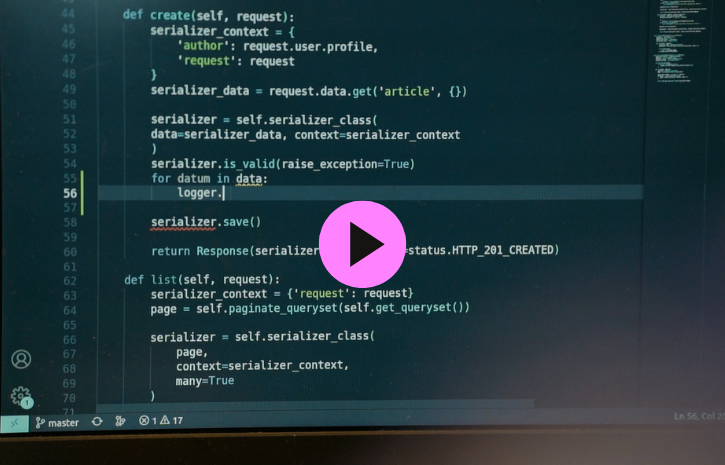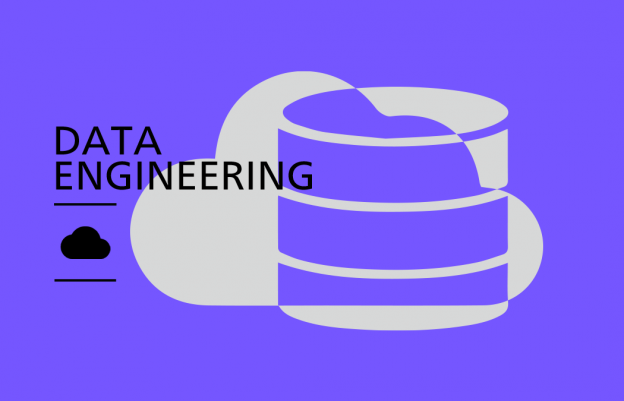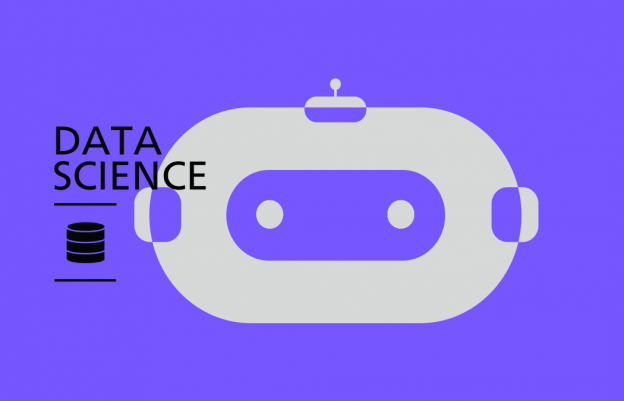
Today, Python is one of the most in-demand and widespread programming languages. Google, Dropbox, Spotify, Amazon, Facebook, Instagram - this is an incomplete list of companies whose significant service components are created using Python. It has an active, global community of developers and one of the largest open-source libraries, which contributes to global-scale operations in this field and the development of the language.
Python is one of the best choices for back-end development, machine learning, data engineering, and cloud services. That's why learning it is a good start for anyone interested in the diversity of the technology field.
During the course, we will cover the basics of computer science, learn the Python programming language, and build a web service using Django and Flask frameworks, which will allow students to take the next career steps in Back-end Development, as they will already have an individual project completed within the course in their Github portfolio.
კურსის დასრულების შემდეგ შეგეძლება
დამატებითი უნარები: Django, Flask, Vscode, Fast API.
-
Set up an IDE (vscode) work environment & work on projects
-
Manage projects using version control
-
Organize projects cleanly & logically
-
Use Python's most popular web frameworks
-
Deploy Python Back-end & use recommended approaches
-
Test Python project functionality
-
Prepare documentation for Python projects
-
Use OOP approaches to solve problems
-
Manage & work with packages in Python projects
-
Use popular Python packages from the built-in library
-
Use popular open-source Python packages
-
Work with databases using Python
-
Collect & perform basic cleaning of information using Python
-
Integrate / interact with services using Python
-
Independently use Python Frameworks (Django, Flask, FastAPI)
-
Further career development in several directions using the Python programming language (web development, data science, data analytics, web scraping)
ვისთვის არის კურსი

Beginners
The course is designed for those who want to learn Back-end Development, specifically Python from 0, to start writing web applications and/or web services.

Programmers
The course is also suitable for those who have already had contact with other programming languages and now want to learn Python.
პროგრამა მოიცავს
Alumni Club
After successfully completing the final exam, graduates will be automatically enrolled in the Alumni Club. This membership grants them access to exclusive events, content, and special offers from our partner companies
Work Based Learning
The course includes practice-based learning, including assignments/exercises and individual projects.
Bilingual Certification
Upon successful completion of the course, students will receive a bilingual certificate.
კურსდამთავრებულები
სილაბუსი
აარჩიე შენთვის სასურველი დრო
ლექტორები
ხშირად დასმული კითხვები კურსის შესახებ
Your search Digital Designer did not match any documents
ვერ მიიღე შენთვის საინტერესო ინფორმაცია?
ჩაეწერე უფასო კონსულტაციაზეშესაძლოა გაინტერესებდეს
რელევანტური რესურსები
იხილე სრულად5 Reasons Why You Should Learn Data Engineering
Data engineering is the design and development of systems and infrastructure that automatically collect, store, and analyze large amounts of data. Its goal is to develop methodologies and tools that ensure maximum perfection of processes, stability, and reliability of information. This is achievable through programming. A data engineer is a software engineer specialized in data technologies. They build systems where any employee of the company can easily access the data they need. Thus, they set up tools that the data team and their company need for success. It is data engineers who create the foundation of the modern data ecosystem.If you know the Python programming language and are attracted to working with data, this profession will interest you. Read the blog and find out the 5 reasons why you should choose data engineering. 1. Data engineering is the backbone of data science Data engineers are the first to receive large amounts of structured and unstructured data that enter the company's systems. Therefore, they are the foundation of the data strategy. It is data engineers who start working with them and ensure their collection, storage, and transformation. The more efficiently they work, the easier it becomes for other team members (data scientists and analysts) to conduct subsequent processes, and vice versa.Consequently, a lot depends on the work of data engineers. This is confirmed by the principle of how companies with well-developed strategies staff their data teams. Usually, in such organizations, we find this ratio: for every data scientist, there are 2-3 data engineers. In companies with more complex data, this number equals 4-5 engineers. Data Engineering 17 Week| 33 Lecture | 99 Hour Learn More Data engineering is full of technical challenges The essence of data engineering is to develop functions that will be large-scale and effective. This helps other team members focus directly on the data and devote time to their analysis, rather than trying to solve programming problems. Moreover, data engineering requires less mathematics than data science. Therefore, if programming is your strength and you prefer it to mathematics, this direction is the ideal option for you. A respected and valuable profession Making life easier for data scientists is not the only result that motivates data engineers. They also have a growing influence on ongoing processes in the world.We create 2.5 quintillion bits of data daily. Due to their scale, the importance of data engineers has never been as great as it is today. Their need will increase even more in the future. According to Business Insider, by 2025 there will be 64 billion IoT devices. For comparison, in 2018 this number was 10 billion. This trend indicates the multiplication of data from more sources. Consequently, the demand for data engineers will increase significantly in the future for their effective processing and storage. This means that data engineers have a diverse path to discover their areas of interest and deepen relevant skills. Many tools and technologies available today help them in this. For example, popular tools such as Amazon Redshift, Amazon S3, Apache Cassandra, Apache HBase, Apache Kafka, Azure, PostgreSQL, Redis. Of course, it's not necessary to know how to use each tool, but this list shows well how versatile the world of data engineering is. And which technique you use to perform tasks depends on your desire and choice. Since data engineers also possess software engineering skills, they can also create digital products. If you want to participate in startup development or become an entrepreneur and start your own company, learning this profession will definitely be useful. The techniques needed for data engineering will help you both create a digital product and analyze its operation.If working remotely is more comfortable for you, data engineering is a good choice for this. Most tasks don't require being in the office. Due to the high demand for specialists, it's definitely possible to find a remote job or work on short-term private projects. In addition, you can contribute to the development of the data science community. On average, 65% of professional developers post Open Source projects on Stack Overflow once or more per year. So, you too can make changes and develop and refine new techniques for people working in the field. High income It's true that salary shouldn't be the only decisive factor when looking for a job. However, we can't deny that it still plays a big role in this process. The average income of data engineers will not leave you indifferent - this number is equal to $117,000.This data is not surprising at all. The skills needed for data engineering, such as Python, SQL, are among the highest-paid knowledge. According to LinkedIn, there are many more job postings for data engineer positions (up to 112,500 vacancies) than for data scientists (up to 70,000 vacancies). And the demand is very growing - in 2019 it increased by 88% compared to the previous year. This trend will definitely continue in the future. Learning data engineering is valuable even if you don't plan to continue your career in this profession Even if you don't want to start working in data engineering and are more attracted to the position of data scientist, it will still be beneficial for you to gain knowledge in this regard:As a data specialist, you will often have to perform tasks that correspond to the role of another position, including data engineering;Learning different approaches will help you better understand the issue. Also, you will be able to improve skills that you rarely use in your daily activities;You will become more confident, which will also reflect on your career advancement;Communication with data engineers will be easier for you, which is the key to effective collaboration. As you can see, data engineering is a field full of adventures. It will never lack new and interesting challenges. So, if you want to have one of the most in-demand and highly paid skills in the future, start learning data engineering. Join us at Commschool! Learn More
Data Engineering: Profession, Skills, Career Path
The vast amount of data is changing the principles of doing business and also creating a demand for data engineers who can collect, store, and sort it. It's expected that by 2025 we will produce 463 exabytes of data daily. Processing information of this scale will be impossible without industry specialists. Therefore, data engineering will become an important part of future global changes. If you work in programming and want to be part of a challenging process, read the blog and find out what opportunities data engineering offers. What does data engineering involve? Data engineers work on designing and creating systems that collect, process, and transform primary data into usable information for data scientists and business analysts. Their main goal is to make data accessible in such a way that the organization can use it to evaluate and optimize business.This is an incomplete list of responsibilities you might have when working with data:Collecting databases that relate to business needsDeveloping algorithms that transform data into practical informationBuilding, testing, and maintaining the system architecture of databasesCollaborating with managers to understand company goalsCreating new methods and tools for data validation and analysisEnsuring compliance with data management and security policies Why should you choose data engineering? Working in this field is both enjoyable and challenging. You will play an important role in the company's success. You achieve this by making data easily accessible to data scientists, analysts, and decision-makers. They need this information in their daily activities. For this, you will need programming and problem-solving skills. As long as data exists, there will be a demand for data engineers. Moreover, according to a 2019 study, data engineering is the trendiest job in the technology industry. It leaves behind computer scientists, web designers, and database architects In addition, data engineering is a high-paying profession - according to 2022 statistics, the average income in the US is $115,176.To become a successful data engineer, it's desirable to have relevant knowledge and skills in computer science. This will create the foundation needed in this rapidly developing field. If you have a bachelor's degree in computer science, then you can study data engineering at the master's level. However, it's possible to master this profession without continuing studies in higher education institutions. For this, 4 stages need to be passed: Develop skills needed for data engineering At the initial stage of your career in data science, learn the basics of cloud computing, coding, and database design. Specifically:Collecting databases that relate to business needsDeveloping algorithms that transform data into practical informationBuilding, testing, and maintaining the system architecture of databasesCollaborating with managers to understand company goalsCreating new methods and tools for data validation and analysisEnsuring compliance with data management and security policiesWhy should you choose data engineering? Working in this field is both enjoyable and challenging. You will play an important role in the company's success. You achieve this by making data easily accessible to data scientists, analysts, and decision-makers. They need this information in their daily activities. For this, you will need programming and problem-solving skills.As long as data exists, there will be a demand for data engineers. Moreover, according to a 2019 study, data engineering is the trendiest job in the technology industry. It leaves behind computer scientists, web designers, and database architects.In addition, data engineering is a high-paying profession - according to 2022 statistics, the average income in the US is $115,176.To become a successful data engineer, it's desirable to have relevant knowledge and skills in computer science. This will create the foundation needed in this rapidly developing field. If you have a bachelor's degree in computer science, then you can study data engineering at the master's level. However, it's possible to master this profession without continuing studies in higher education institutions. For this, 4 stages need to be passed:Develop skills needed for data engineering At the initial stage of your career in data science, learn the basics of cloud computing, coding, and database design. Specifically:Coding: Programming languages are essential for data engineering. Therefore, be sure to learn and develop coding skills. Useful programming languages in this field are SQL, NoSQL, Python, Java R, and Scala.Databases: They are most often used when solving data storage problems. Accordingly, you should be well acquainted with its working principles.ETL (Extract, Transform, Load) systems: This is the process when you transfer data from databases and other sources to one repository, for example, a Data Warehouse. The following tools are used for this: Xplenty, Stitch, Alooma, Talend.Data storage: Not all types of data are stored in the same way, especially when it comes to large amounts of data. When working on solving this problem for a company, you need to understand well, for example, when to use a Data Lake and when to use a Data Warehouse.Automation and scheduling: Automation is an essential part when working with a large database, for which you should be able to write a plan to perform repetitive tasks automatically.Machine learning: This topic is of interest to data science, but it will help you understand the basic principles. It will also show you the need for specialists in this field in the team.Big data tools: Data engineers mostly have to work with large amounts of data. Tools and technologies are constantly evolving. Among them, the most popular are Hadoop, MongoDB, Kafka.Cloud computing: Today, companies are replacing physical servers with cloud services. Therefore, studying this issue well will definitely be useful.Data security: Data engineers often have to work on securely storing data and protecting it. Accordingly, this skill will be needed in daily activities. Take a data engineering course Obtaining a certificate will be proof of your skills to employers. Therefore, study data engineering in a certified course and gain relevant knowledge and practical experience. This will help you refine and improve the necessary skills.Here I'll also tell you new news - you can now study data engineering at Commschool! If you know the Python programming language, then this program will interest you. Together with a professional lecturer in the field, you will learn to use key technologies and tools for data engineering, design web services for data, and various Python libraries. So, be sure to check out the course syllabus. Data Engineering 33 Lecture/ 99 Hour / 17 Week Learn More Create a portfolio In the job search process, a portfolio is often a decisive component, as it best shows your capabilities Therefore, create a web page portfolio of data engineering projects that you have completed independently or as a final course assignment. Place them on your LinkedIn profile or GitHub. tart working in an entry-level position Many data engineers start their careers in entry-level positions such as business analyst or database administrator. When you gain experience, acquire new knowledge and skills, you can also get employed in higher positions. Thus, if you see yourself in this field, take this opportunity and start learning data engineering at Commschool! Join Us
Career Guide: Become a Data Engineer
Every day we receive, process, and analyze a large amount of data, which helps us make decisions. This process is particularly important for companies. They use data to evaluate and optimize their business. A data engineer plays a significant role in this, whose responsibility includes building systems necessary for collecting, storing, and processing large amounts of information.If you want to pursue a career in data engineering, then you must read this blog. Here you'll get advice on how to become a successful data engineer. According to the International Data Corporation, by 2025 we will collect 175 zettabytes (10^21 bits) of data (for comparison, this year's figure is 33 zettabytes). How will companies manage to store and process information of this scale? The answer is: by hiring many data engineers. The reason for this is that they need more people "on the front line" to collect numerous primary data from various sources. Their main responsibility is to ensure that teams from different departments of the organization can seamlessly analyze the data they need and use it for multiple purposes. Data engineers use ETL channels to group information and make it clearer and more understandable for the entire company. How in-demand is the profession of a data engineer? In 2020, the number of vacancies announced for the position of data engineer increased by 40%. For comparison, this figure was only 10% for data scientists. For this reason, data engineer has become the fastest-growing technology profession, with demand increasing year by year. In addition, today many companies are replacing physical servers with cloud services, so the need to hire more data engineers is very high to provide significant assistance to the data science team. As for income, this direction also occupies one of the leading positions in this regard. The skills required for data engineering are quite well-paid. For example, in the USA, the average annual income is $115,157. So if you're planning to change professions and choose a new career path, now is the best time to step into this field. Data Engineering Program 33 lectures / 99 hours / 17 weeks Learn more about the course Now I'll tell you how to become a successful data engineer and what skills you'll need for this: Interest in data-driven decision making To start working in this field, you must have the desire to learn a new and challenging job Working with data and using it to draw correct and valuable conclusions and assumptions is one of the most useful skills today. In this process, you may encounter problems that require more effort from you. But if you have a strong will for this, you will definitely overcome existing obstacles. Ability to use SQL and DBMS systems Database Management Systems (DBMS) are software systems used to store, retrieve, and analyze data. A data engineer is responsible for creating them and performing actions using various tools. The most common tool among them, which is more popular than Python and R, is SQL (Structured Query Language). Therefore, study this tool well and its usage techniques, commands, and syntax. Knowledge of a programming language Data engineers use programming in their daily activities. Accordingly, you should know at least one language - Java or Python.This role involves data analysis using statistics and graphs, for which Python and other programming languages are often used. Therefore, I advise you that if you don't already know one of them, start learning it and gain practical experience. Knowledge of cloud computing basics As I've already told you, companies are actively starting to use cloud services. Data engineers will be involved in this process. Among cloud service platforms, there are three main competitors: Amazon Web Services (AWS), Google Cloud Platform (GCP), and Microsoft Azure. If you want to continue working in this direction, devote time to learning the basics of cloud computing. Work on projects that will teach you how to effectively use the listed platforms to solve real problems. Data storage and ETL techniques Creating effective ETL/ELT channels is important for every organization to store large amounts of information in an organized way. To achieve this, data engineers use various tools, for example, Snowflake, Star. Knowledge of these is an essential skill for your successful career. Ability to work with big data We live in an information age and produce and process numerous bits of data daily. There are many tools to work with big data: Spark, PySpark, Hive. You'll need to learn techniques for using them and have practical experience to work with large databases. Knowledge of new tools This field is constantly evolving and many new instruments are being created that help data engineers perform various types of tasks. For example, Snowflake for data storage, dbt for ELT, Airflow for orchestration. To keep up with the processes and changes in the industry, keep an eye on the news and learn to use such tools. Data Engineering - About the Course In parallel with mastering and improving the skills listed above, you can enroll in a data engineering course, which will better introduce you to this field and help you improve your knowledge and gain practical experience. Successfully completing the course and receiving a certificate will definitely help you in the job search process - it will give you an advantage over your competitors. Now I have good news for you - a data engineering course is starting at Commschool! The program is designed for those who have already learned the Python programming language and are interested in working with data. In the course, you'll study concepts related to data engineering, practical tools and technologies, work on an individual project, and receive career support from Commschool.So, get acquainted with the course syllabus in more detail and join us at Commschool! Learn More
 დამწყები
დამწყები  Live-online
Live-online



 საშუალო
საშუალო 










